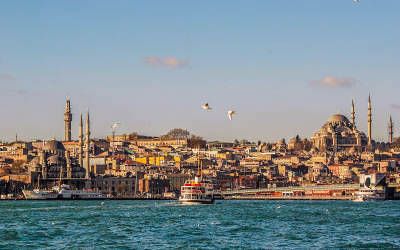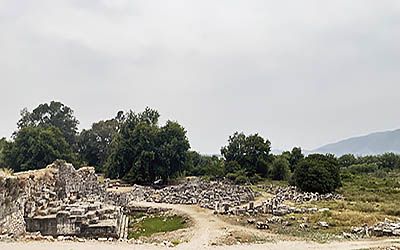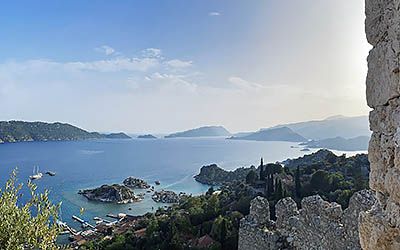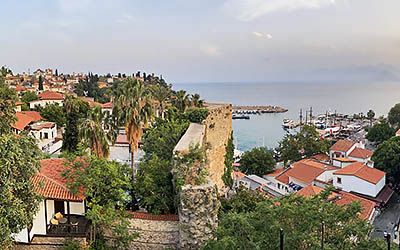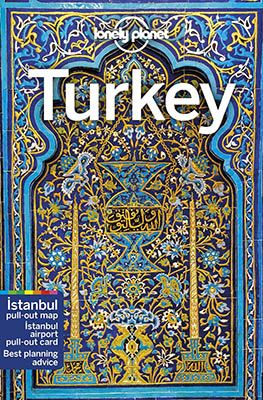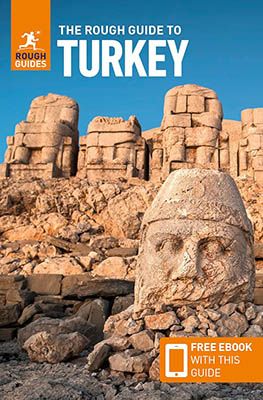Türkiye in a nutshell
Many tourists know the holiday destination Türkiye mainly from the all-inclusive resorts. Or from the particularly interesting city break destination Istanbul. But Türkiye (formerly known as Turkey) is a fantastic holiday destination for many more reasons. Türkiye, located at the crossroads of Europe and Asia, has an unprecedented diverse historical and cultural heritage. In addition, the country offers stunning landscapes. Think of unspoiled beaches to rugged mountains and the beautiful nature in the hinterland. Furthermore, the country has a delicious cuisine and an exceptionally hospitable population.
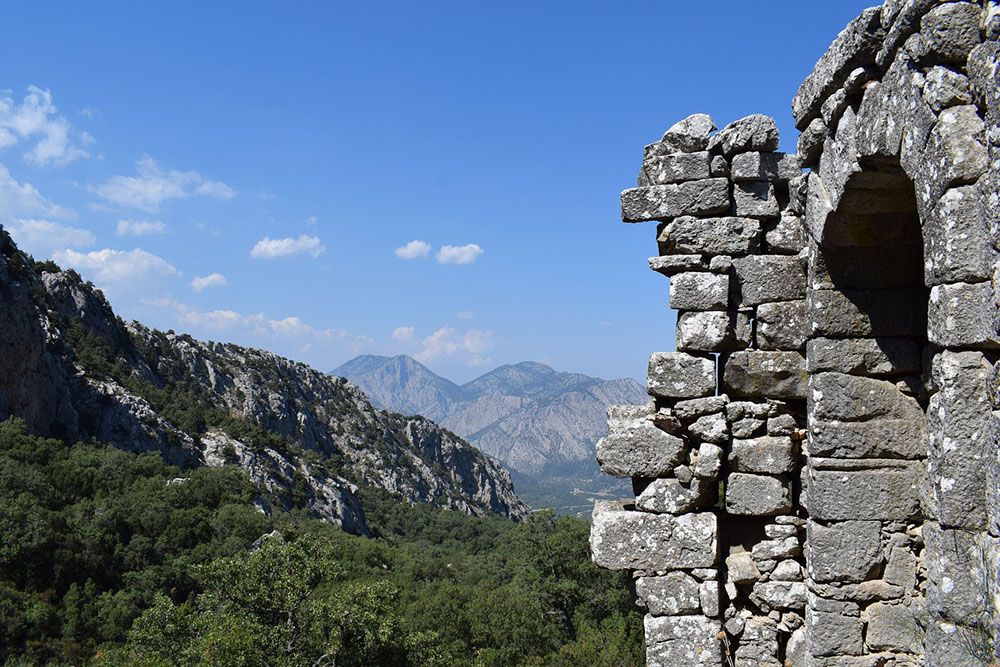
A brief history of Türkiye
Türkiye has a rich and varied history dating back to antiquity. The country has a legacy that extends from the ancient civilisations of Anatolia to the mighty Ottoman Empire and the modern republic of today.
Classical Period
Anatolia, the present-day Turkey, was the home of some of the oldest civilisations in the world. Such as the Hittites, the Phrygians and the Lydians. Later, the area became an important part of the Roman and Byzantine Empires. Cities like Byzantium (the later Constantinople, now Istanbul) emerged that played a central role in classical antiquity.
The Ottoman Empire
In the 13th century, the rise of the Ottoman Empire began, which grew into one of the mightiest empires in history. This empire covered large parts of Southeastern Europe, the Middle East and North Africa. Under the leadership of sultans such as Mehmet the Conqueror and Suleiman the Magnificent, the Ottoman Empire reached its peak in the 16th and 17th centuries.
Modern times and the Republic of Türkiye
After the First World War, Türkiye underwent a period of profound change. Under the leadership of Mustafa Kemal Atatürk, the Republic of Türkiye was proclaimed in 1923, putting an end to the Ottoman Empire. Atatürk carried out reforms that transformed Türkiye into a secular and modern state.
Modern Türkiye has found its place in the world as a bridge between East and West, with a vibrant mix of cultures, traditions and beliefs. The country has a dynamic economy and a thriving tourism industry. At the same time, Türkiye remains a crucial player in the geopolitics of the region.
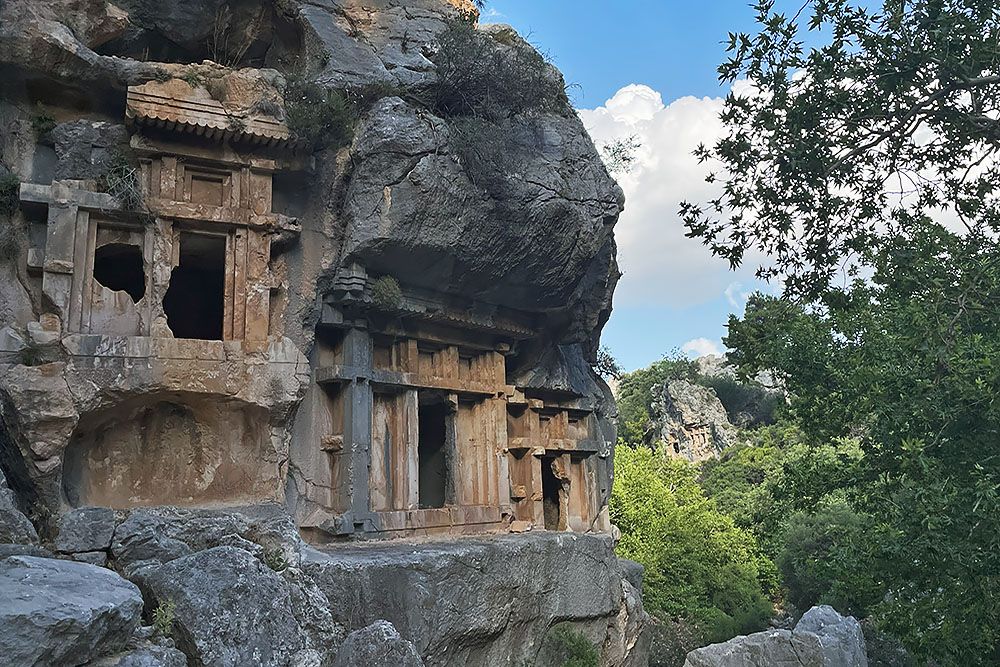
Click to jump to any topic below:
Accommodation
In Türkiye, there are various accommodation options, ranging from luxury resorts to simple pensions. Here are some popular options:
- Hotels: Türkiye has a wide range of hotels, from 5-star resorts to boutique hotels and budget-friendly options. Most major cities and tourist destinations offer an abundance of hotel accommodations.
- Holiday apartments and villas: Especially in the coastal areas, there are many holiday apartments and villas for rent. This is a popular option for travellers looking for more space and privacy.
- All-inclusive resorts: Along the Turkish coastline, you’ll find numerous all-inclusive resorts that offer a wide range of facilities and activities.
- Boutique hotels and mansions: In historic cities and picturesque villages, there are often boutique hotels and mansions that offer a unique, charming experience.
- Traditional accommodations: For an authentic experience, you can consider staying in a ‘pansiyon’ or a ‘konak’, traditional Turkish accommodations that provide an insight into the local culture.
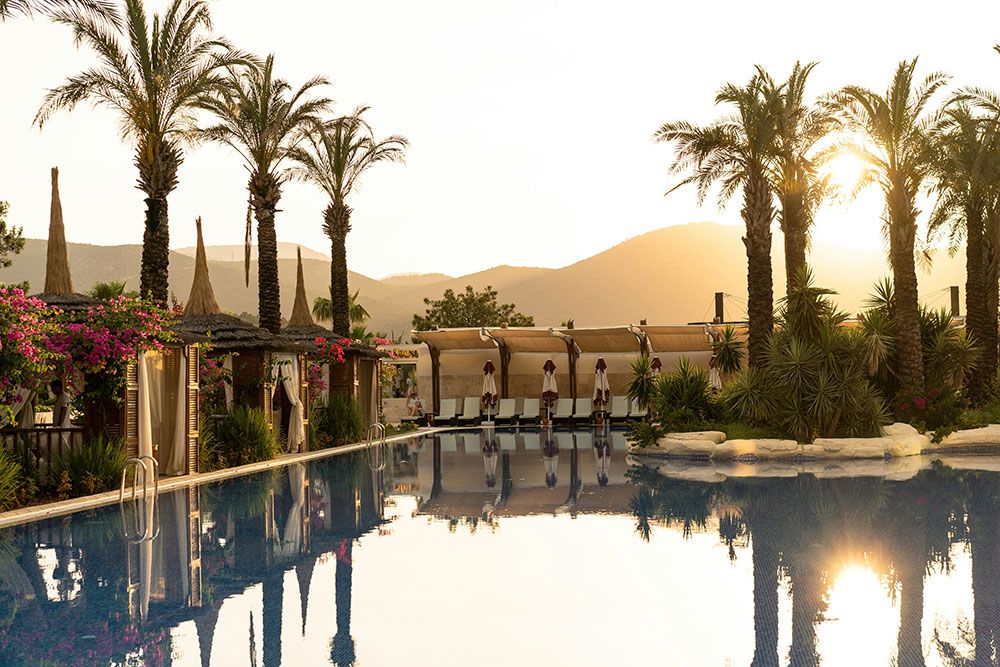
Travel advice for Türkiye
For most of Türkiye, a green travel advisory applies. Although it is generally safe to travel in Türkiye, there are specific security risks. Check the current travel advice for Türkiye for more information on the current risks.
Healthcare in Türkiye
For Türkiye, a vaccination recommendation applies for DTP and Hepatitis A. In addition, rabies occurs in the country. You can get vaccinated against this.
The tap water in Türkiye has a chlorine taste. The recommendation is to only drink bottled water.
Best time to visit Türkiye
The best time to visit Türkiye varies depending on your interests and the region you want to visit. Generally, the spring (April and May) and autumn (September and October) are ideal periods for exploring historical sights, due to the pleasant temperatures and limited crowds. In the summer (June to August), it’s perfect for visiting the coastal areas, such as Kusadasi and Fethiye, while the winter is a good time to visit historical sites without the crowds. It’s also ideal to visit Türkiye during traditional festivals and celebrations, such as Şeker Bayramı at the end of Ramadan.
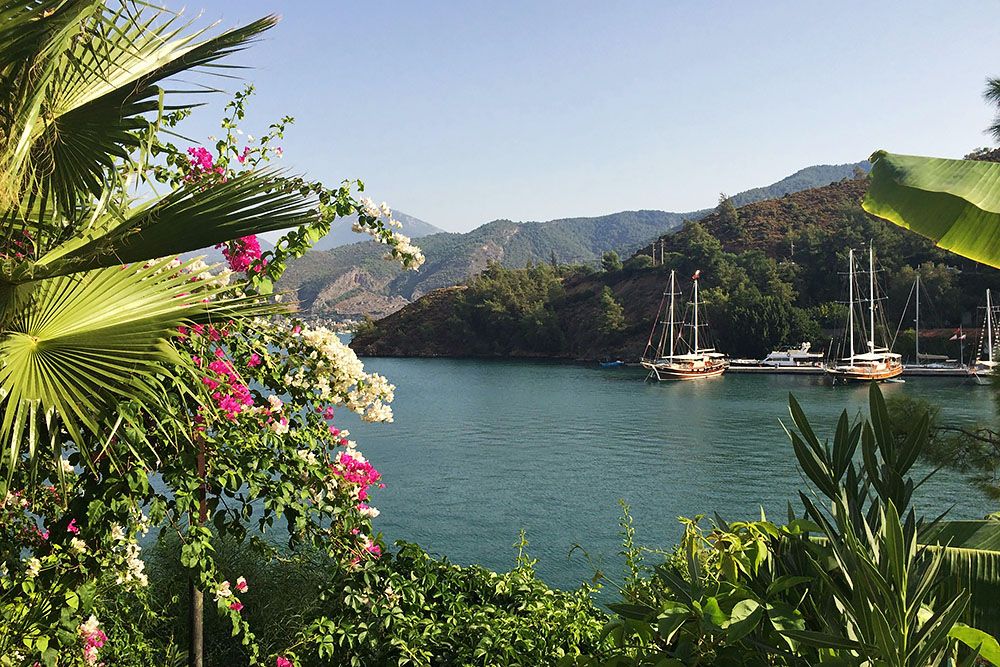
Visa for the Republic of Türkiye
For a stay of up to 90 days, you do not need a visa for Türkiye if you have a European passport. An exception applies for the Republic of Cyprus, as well as Schengen Annex II countries and territories.
Food and drinks
The culinary tradition of Türkiye has evolved over the centuries and draws on historical ties with the Byzantine and Ottoman Empires. Turkish cuisine is known for its colourful and diverse dishes, using a lot of vegetables and incorporating countless different influences. Specific flavours in different regions contribute to the complexity of Turkish cuisine. Each region also has its own distinctive specialities.
Traditional dishes include Meze (appetizers), Turkish kebabs, Turkish cheeses, the extensive Turkish breakfast, vegetarian dishes and various snacks and street food. Special delicacies include Turkish Delight (lokum), Ekmek Kadayıfı (a bread pudding) and Testi Kebab (a specialty from the Nevsehir region). And of course, Baklava, the overly sweet dessert that is also widely eaten in the neighbouring country of Greece.
Türkiye also offers a range of drinks. Such as Turkish tea, Turkish coffee and various alcoholic beverages (despite being an Islamic country). A popular drink is Raki, an anise-flavoured spirit.
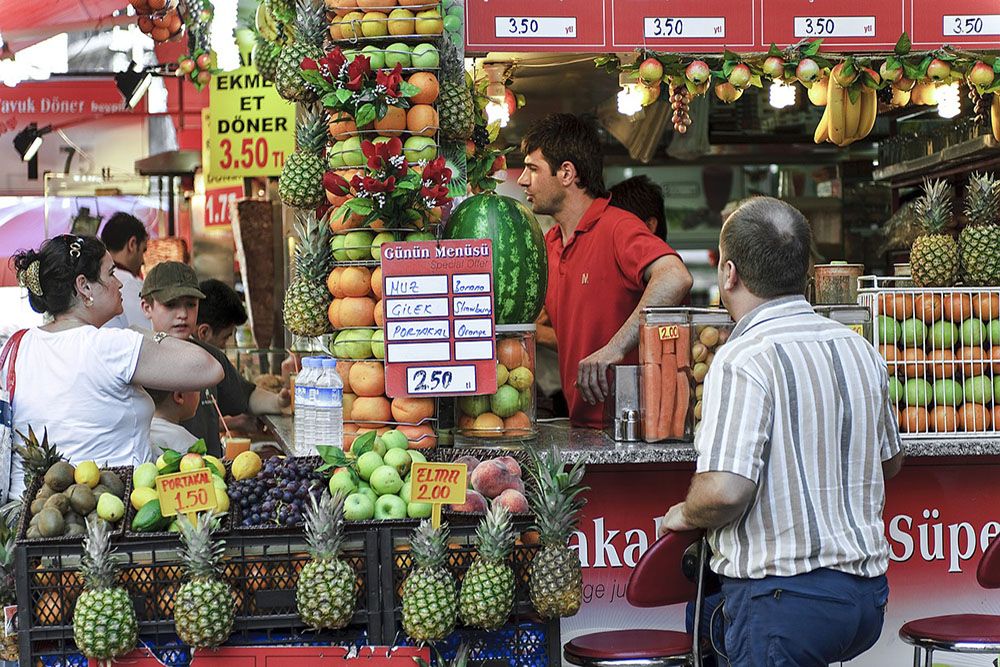
Getting around in Türkiye
Türkiye has an extensive public transport system that connects the entire country. Using buses in Türkiye is straightforward. Various bus companies offer comfortable travel options. Tickets can usually be purchased on the day, but for popular routes, it can be helpful to buy tickets in advance. Train travel in Türkiye is generally limited and slower, with the exception of the busy high-speed line between Istanbul, Eskişehir and Ankara. For popular routes, it is recommended to purchase train tickets well in advance.
There are nearly 50 cities in the country with active domestic or international airports. Although less environmentally friendly, flying is a convenient option for covering long distances. Various airlines offer domestic flights at reasonable fares.
Another ideal way to get around in Türkiye is by rental car. Driving in the country is not much different from driving in our own country. The traffic rules are largely the same, they are just less strictly adhered to. But overall, this does not necessarily result in more dangerous situations. Renting a car is affordable compared to many other locations in Europe.
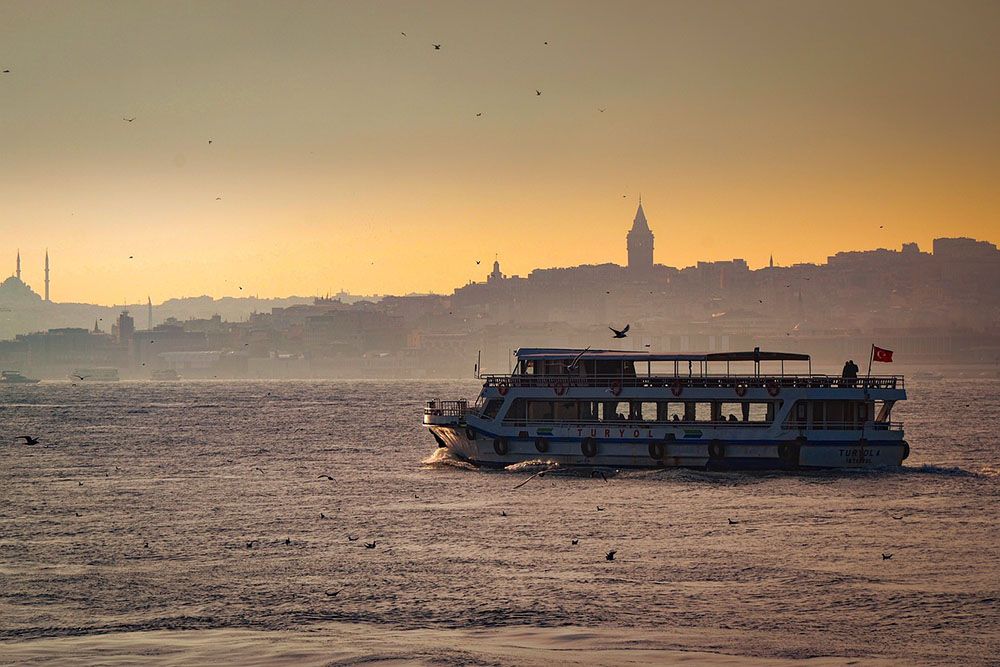
Electricity
Sockets of type C and F are used in Türkiye. The mains voltage is 230 V at 50 Hz. You need a power plug adapter when living in the UK or Ireland.
Money matters
In Türkiye, you pay with the Turkish lira. Euros are often also accepted. This applies especially to the tourist areas. However, it is more advantageous to pay with Turkish lira, as the exchange rates for euros are not always favourable. Withdrawing money from ATMs with a Maestro card is often cheaper than exchanging money at exchange offices. Credit cards are increasingly accepted at hotels and restaurants.
The price level in Türkiye is generally considered (significantly) lower compared to many Western European countries. This applies to things like food, accommodation, transport and daily necessities. Prices do vary depending on the region. However, Türkiye has been grappling with unprecedented high inflation in recent years.
Highlights of Türkiye
The highlights of Türkiye include a rich mix of historical sites, stunning landscapes and cultural experiences. The country also offers particularly interesting outdoor opportunities, including two iconic long-distance hikes. In the coming period, you will find some of the many highlights of the country.
Istanbul Highlights: A Journey Through Two Worlds
Istanbul is unique. It’s the only global metropolis that stretches across two continents: Europe and Asia. Here, worlds don’t collide—they blend together. We walk across bridges between cultures and centuries of history. Istanbul exudes...
Historical discovery tour along the Turkish Riviera
Antalya's rich past spans many thousands of years. Here, you'll find traces of civilisations that have each left their mark on this beautiful part of Türkiye. From the ruins of ancient cities to medieval fortifications and Ottoman...
Outdoor opportunities in the Turkish province of Antalya
Last spring, we explored the stunning southwest coast of Türkiye. We visited the city of Antalya and numerous particularly impressive historical sights. But above all, we were amazed by the unprecedented outdoor opportunities that the...
Culture and history in the Mediterranean city of Antalya
In late May, we were on a tour along the southern coast of Türkiye. The starting point of the journey was Antalya, a city we had the image of large all-inclusive beach resorts. Unjustly, as it turned out later. For although there are...

